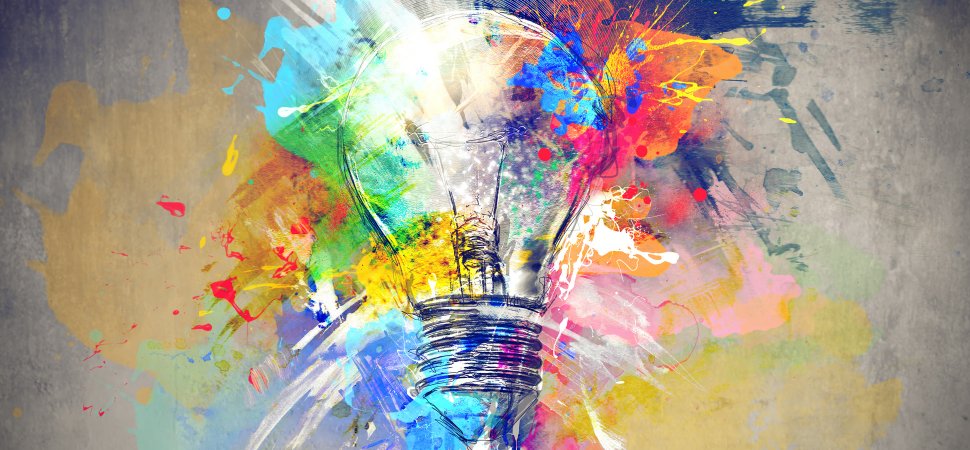Andrea Bocelli performs moving Music for Hope concert in an empty Duomo in MilanThe Italian tenor sings four hymns, finishing with a moving rendition of Amazing Grace, as a montage shows the empty streets of Paris, London and New York.
This article is adapted from Olga Khazan’s forthcoming book, Weird: The Power of Being an Outsider in an Insider World.
The Perks of Being a Weirdo
How not fitting in can lead to creative thinking
Even after we moved to a Dallas suburb, I never encountered another Russian immigrant kid like me. I rode the bus alone. I spent almost every evening alone. I began talking to myself—a habit that has unfortunately stuck. Once, someone toilet-papered our house, and I had to explain to my parents that this is what American kids do to losers. Undeterred, my dad eagerly raked the toilet paper into a garbage bag and put it in my parents’ bathroom for future use. “Free toilet paper!” he said happily over dinner.
All I wanted to be was normal. I wanted to be as American as my classmates; I wanted a past that, when I explained it to people, compelled no one to ask “Why?” about any part of it. But with time, I’ve come to realize that there’s an upside to being different from everyone around you. In fact, a body of social-science research suggests that being an oddball or a social reject can spark remarkable creativity.
Sharon Kim, who teaches at Johns Hopkins University’s business school, told me she’d always noticed that some people credit their creative successes to being loners or rebels. Kim wondered whether social pariahs are actually more creative, so she decided to test the theory by inviting some volunteers to her lab to complete a couple of exercises. Before they began, Kim and her colleagues “rejected” some of the study subjects by telling them they weren’t picked to work as part of “the group.” There was no group—Kim and her team just wanted to make them feel left out. Others weren’t snubbed in the same way. Kim asked the participants to perform a pair of exercises on paper. In one, they were asked to determine what united a series of seemingly unrelated words (fish, mine, and rush, for instance—the answer is gold). In the other, they were told to draw an alien from a planet very unlike our own.
The rejects, it turned out, were better at both exercises. For the alien task, the nonrejected participants drew standard, cartoonish Martians. But the rejected participants drew aliens that looked radically different from humans—they had all of their appendages sticking out of one side of their body, or their eyes below their nose. The outcasts’ drawings were more creative, as rated by three independent judges.
So rejection and creativity were related, Kim determined. But with a caveat. The advantage was seen only among participants who had an “independent self-concept”—meaning they already felt they didn’t belong. There appeared to be something about being a weirdo that could uncork your mind and allow new ideas to flow. ...
The Irresistible Drama of Becoming Who You Want to Better
In our world of contradiction, tension, struggle, and confusion, staying inspired and coming up with new ideas can be extremely difficult—maddening even. Though it’s a special concern for those of us who must be creative for a living, but also for anyone who wants to leave their creative imprint on this world.
Modern culture often labels creativityas natural gift. Artists get showered with praise and proclamations of "you're so talented," but truthfully, talent has little to do with it.
Ways to become more creative
No pants, no problem. But cover your face.
Ways to become more creative
No pants, no problem. But cover your face.
MATT MARANIAN
Tom Hanks takes a crack at Aussie accent hosting Saturday Night Live from home
After becoming the celebrity "canary in the coal mine" for coronavirus when he was diagnosed on the Gold Coast, Tom Hanks riffs on his time in Australia — and his lessons on Vegemite — while hosting the US late night show.
A Crisis of Cognition
In journalism, we think our job is to "get the story." We teach the skill of "knowing what a story is." We call ourselves "storytellers." We believe that through stories?—?or as we also like to say when feeling uppish, "narrative"— we attract and hol...
Buzz Machine
After becoming the celebrity "canary in the coal mine" for coronavirus when he was diagnosed on the Gold Coast, Tom Hanks riffs on his time in Australia — and his lessons on Vegemite — while hosting the US late night show.
In journalism, we think our job is to "get the story." We teach the skill of "knowing what a story is." We call ourselves "storytellers." We believe that through stories?—?or as we also like to say when feeling uppish, "narrative"— we attract and hol...
Buzz Machine
Buzz Machine

